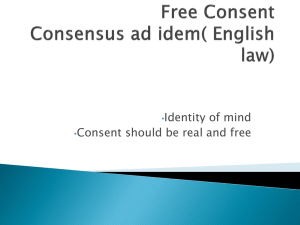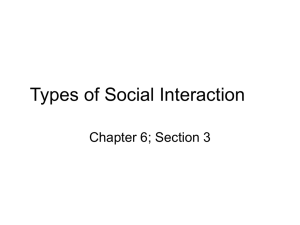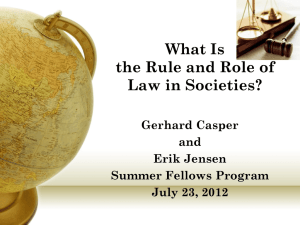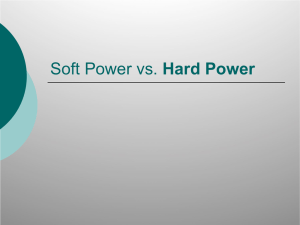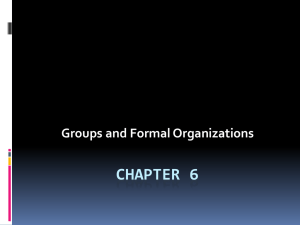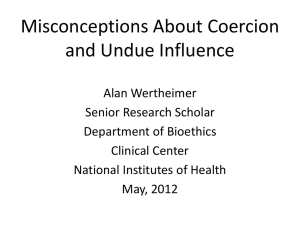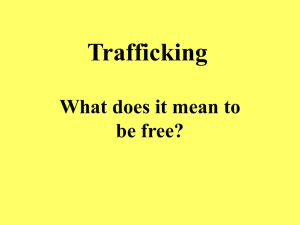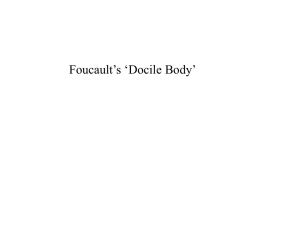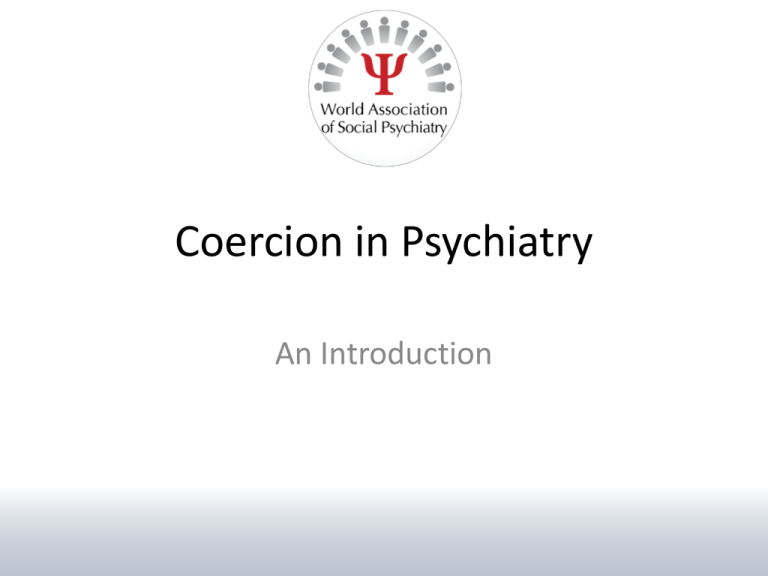
Coercion in Psychiatry
An Introduction
What is coercion?
• Oxford English Dictionary definition:
• ‘to constrain or restrain by the application of superior
force, or by authority resting upon force’.
• Coercion can be further explained:
• As a relationship where one party has power over the
other.
• Coercion does not necessarily require obvious threats
of force, it is often achieved through the implication
that force could be an outcome.
Coercion within Psychiatry
• Compulsion within Psychiatry
• The power to compel someone to accept mental health
treatment has long-existed in psychiatry via the use of
legislation. This can take the form of admission to a
treatment facility.
• Inevitably, when there is the threat of compulsion or
use of compulsion, an individual could experience
coercion.
• Coercion is therefore an aspect of psychiatry
and used in psychiatric practices.
Objective and Subjective Coercion
• There are both ‘subjective’ and ‘objective’
aspects to coercion and these aren’t mutually
exclusive.
• Objective coercion
• This is the actual use of coercion through compulsion,
or the threat of compulsion or other types of force.
• Subjective coercion
• The perception that a threat or force may be applied if
the other party’s request is not adhered to.
More on Subjective Coercion
• Perceived coercion to accept mental health
treatment does not only come directly from
mental health services.
• Pressure to accept treatment can arise from family and
carers.
• One can feel coerced to accept treatment through
social and cultural expectations (Canvin, 2012)
Coercion in Modern Psychiatric
Practice
• Over the last few decades in most developed nations, the
movement towards treating people with mental health
difficulties in the community, instead of in hospital, has
increased.
• This has changed the debate about what is considered coercive.
• Traditionally, coercion in psychiatry was limited to the use of
compulsory admission and the use of restraint and force.
• Community treatment has raised new questions regarding
how coercion is experienced by people accessing mental
health services.
• The majority of patients in the community are not subject to any
legislative compulsion1. However rates of reported coercion are high
in community populations (Burns et al., 2011; Monahan et al., 2005).
1. New legislation in some countries now allows
compulsion in the community through the use of
‘outpatient commitment’ or Community
Treatment Orders.
Coercion in the community
• While compulsion is used in the community,
‘informal coercion’ or ‘leverages’ are more
commonly used to encourage treatment
adherence.
• This informal coercion can include persuasion, leveraging,
inducements (i.e. making access to service dependant on
treatment), eventually leading more objective coercion in
threats and compulsion (Szmuckler and Appelbaum, 2008).
• Therefore coercion can take many forms in the
treatment of people with mental health
difficulties.
Is coercion damaging to patients?
• There are a variety of different approaches to
investigating this:
• Legal approaches
• Investigates the state’s role in intervening in a person’s
treatment
• Moral and ethical approaches
• Evaluates whether coercion is appropriate in relation to civil
liberties and human right
• Clinical approaches
• Examines the effect of coercion on outcomes such as
symptoms, hospital use, and engagement with services.
Is coercion damaging to patients?
• It is difficult to determine the effect of coercion
on patients and the results of studies are mixed.
• Due to the various of ways coercion can be experienced.
How do you identify or define it?
• Due to the difficulty of factoring out other variables impact
on patient outcomes. Was being coerced the only factor?
• Some patients do not perceive having been coerced after a
coercive intervention (Hoge, 1997), so further research
needs to investigate the relationship between perceived and
objective coercion.
• This is why it is important to continue efforts to
investigate coercion in psychiatry.
Summary
• Coercion is when one party makes another
party act against their will, either through
force or the threat of force.
• Coercion is commonplace in the treatment of
people with mental health problems and takes
a variety of forms.
• Research is required to investigate the impacts
of coercion and how to limit these impacts.
References
• Burns, T., Yeeles, K., Molodynski, A., Nightingale, H., Vazquez-Montes, M.,
Sheehan, K. & Linsell, L (2011) Pressures to adhere to treatment
('leverage') in English mental healthcare. The British Journal of Psychiatry,
199, 145-150.
• Canvin, K., Rugkasa, J., Sinclar, J., & Burns, T. (2012). Leverage and other
informal pressures in community psychiatric services in England: What can
patients’ experiences add to our understanding? International journal of
Law and Psychiatry
• Monahan, J., Redlich, A.D., Swanson, J., Robbins, P.C., Appelbaum, .P.S.,
Petrila, J., et al. (2005) Use of leverage to improve adherence to
psychiatric treatment in the community. Psychiatric Services, 56, 37–44.
• Szmukler, G., Applebaum, P. (2008)Treatment pressures, leverage,
coercion and compulsion in mental health care. Journal of Mental Health,
17, 233-44

